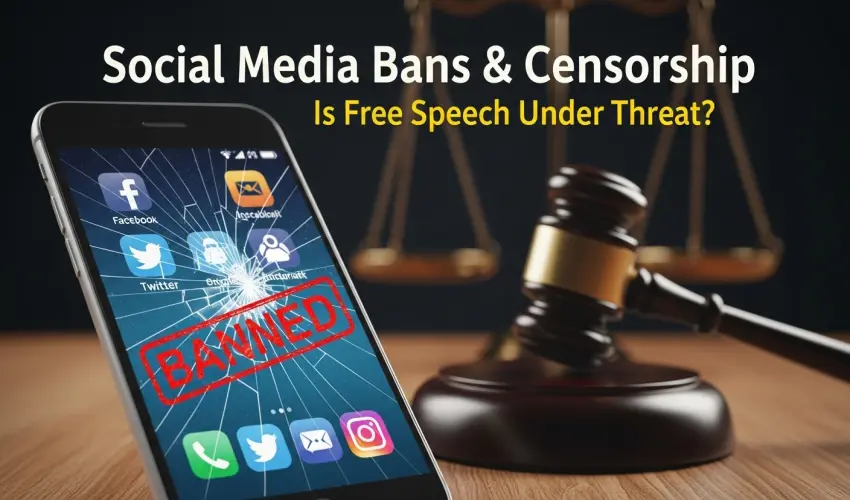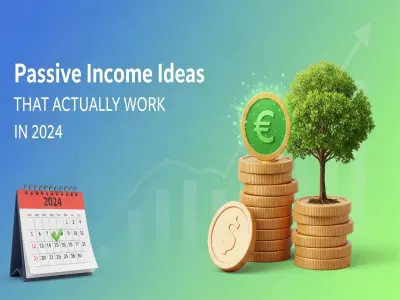Social Media Bans & Censorship: Is Free Speech Under Threat?
Published Oct 30, 2025
1 0
Key Takeaways
-
Censorship on social media is rising, often blurring the line between moderation and suppression.
-
The private ownership of platforms complicates the legal landscape of free speech.
-
Global approaches to censorship differ widely, reflecting different political values.
-
Algorithmic control and corporate monopolies pose major threats to free expression.
-
Users must stay informed, diversify platforms, and advocate for transparency and fairness.
Introduction
Social media was once heralded as the ultimate platform for free speech—a digital town square where anyone, anywhere could express their thoughts without fear. But fast forward to today, and that utopian dream seems under siege. With rising reports of account bans, "shadow banning," and content removals, a burning question emerges: Is free speech truly under threat?
Let’s explore the evolving relationship between social media, censorship, and our fundamental right to express ourselves.
What is Social Media Censorship and Why Does It Happen?
Censorship on social media refers to the suppression of speech, communication, or information deemed objectionable, harmful, or inconvenient by the platforms. This can happen when platforms remove posts, ban accounts, or limit the reach of certain content, often through corporate moderators and algorithms.
Reasons for Content Removal
Social media platforms claim that bans are necessary to maintain safe online spaces. Their reasons typically include:
-
Spread of Misinformation: Cracking down on false information during major events like elections or health crises.
-
Hate Speech and Violent Content: Implementing strict guidelines to curb online harassment, incitement to violence, and hate speech.
-
Political Pressure and Public Safety: Responding to government requests to remove politically sensitive content, often framed as a matter of national security.
The Line Between Moderation and Suppression
Moderation is necessary—nobody wants social media filled with death threats or fraud. But when does moderation become censorship? When platforms start removing dissenting political views or labeling controversial yet legitimate discussions as "misinformation," it veers dangerously close to suppressing free speech.
High-Profile Bans and the Power of Platforms
Several major incidents have sparked global debates about the balance between safety and freedom:
-
Political Figures: The permanent ban of former U.S. President Donald Trump from Twitter and Facebook after the Capitol riot raised alarms about the unprecedented power of tech companies to silence world leaders.
-
Activists: In authoritarian regimes, activists often find their accounts suspended, cutting off critical communication lines during protests.
-
Platform Bans: Nations like China have banned entire platforms like Facebook and Twitter, while other countries have temporarily blocked apps like WhatsApp and TikTok during periods of unrest.
Free Speech vs. Platform Policies: The Legal Gray Area
A crucial point is that social media companies are private entities, and their platforms are governed by Terms of Service, not the First Amendment (in the U.S.). This means users don't have a guaranteed right to speak on a private platform. However, given the monopoly-like power these companies hold over modern communication, critics argue they now function more like public utilities and should be subject to stricter free speech protections.
Global Perspectives on Censorship
Approaches to social media censorship vary drastically across the world:
-
China: Total state control, with platforms required to pre-censor politically sensitive content.
-
Europe: Focused on privacy rights and combating hate speech through regulations like the GDPR and the Digital Services Act.
-
United States: Leans toward platform self-regulation, though calls for government intervention are rising.
The Role of Algorithms in Shaping What We See
AI algorithms play an enormous, often invisible role in content moderation.
-
How AI Shapes Content: Algorithms tend to promote content that generates strong emotional reactions (like outrage or fear), while nuanced discussions or dissenting voices may get buried.
-
Algorithmic Bias: AI systems trained on biased data may unfairly target marginalized groups or alternative viewpoints, suppressing diversity of thought.
Are Tech Giants Too Powerful?
Facebook, Twitter (now X), YouTube, and TikTok control the flow of information for billions of people. This centralization of power raises urgent questions: Should a handful of corporations control global speech? And who holds them accountable? There are growing calls to break up tech monopolies and create decentralized alternatives that return control to users.
The Future of Free Speech Online
Several promising trends are emerging in response to these challenges:
-
Decentralized Platforms: Networks like Mastodon and Bluesky aim to create censorship-resistant, user-owned social media alternatives.
-
Stricter Laws Protecting Digital Speech: Legislators are considering bills that would protect users’ rights to fair moderation and transparent algorithms.
What Can You Do?
You are not powerless in this fight.
-
Stay Informed: Understand your rights and the rules of the platforms you use.
-
Diversify Your Platforms: Don’t rely solely on one social media site for information or communication.
-
Support Open Platforms: Advocate for or join decentralized, open-source networks.
-
Demand Transparency: Push for policies that require companies to be clear about their moderation practices.
Conclusion
Social media censorship is a complex, evolving issue. While moderation is necessary to maintain safety, the trend toward over-censorship threatens the very freedoms that made social media revolutionary. As users, developers, and regulators, we must strike a delicate balance: protecting people from harm without silencing legitimate speech. The future of free speech online—and perhaps democracy itself—depends on getting it right.







